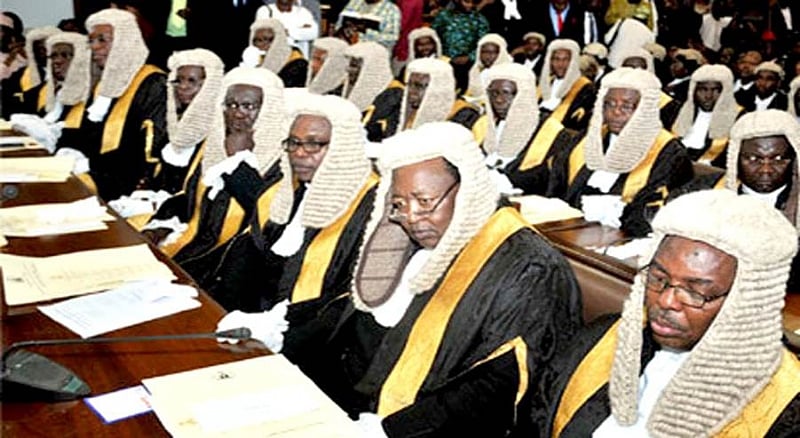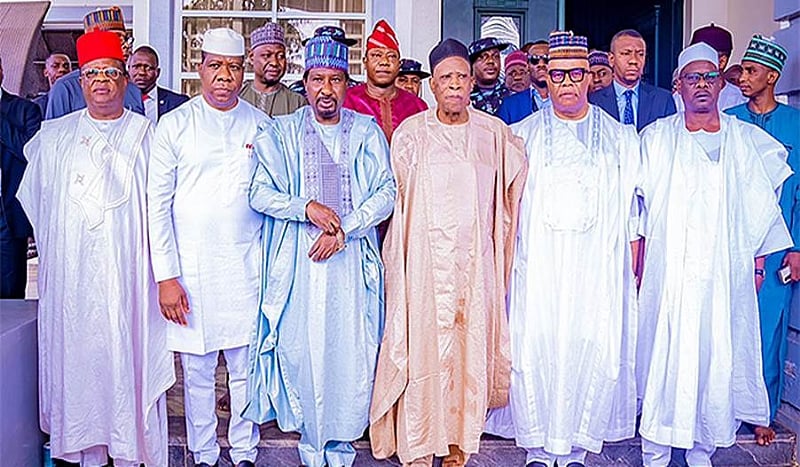Democracy, practised in its truest form, is a political system that is precariously built on the concept of transparency, accountability, and the social participation of informed citizens of the country. But in my native Nigeria, and indeed in many African countries, an insidious cancer has mercilessly continued to eat deeply into the fabric of democratic manifestation. It is called sycophancy. Sycophancy, the act of excessive flattery and servile praise for those in political, social and religious power is not a new phenomenon. Yet, in recent decades, it has become an entrenched tool of governance and political survival, with devastating consequences for the nation’s democratic evolution.
On 6 November 2017, I wrote an article in the Modern Ghana online newspaper titled “Rehoboam syndrome and the reform Nigerian politicians need to make.” In that article, I highlighted how leaders surrounded themselves with “praise singers” who told them what they wanted to hear rather than the harsh truth they needed to confront. This practice has grown even more pervasive today, and it is undermining the foundational pillars of our democracy.
To understand how deeply rooted sycophancy is in Nigeria’s political landscape, one must revisit the country’s history. From the era of military dictatorships to the successive democratic administrations, leaders have always sought validation. Those they surrounded themselves with invariably found that flattery was the easiest route to secure positions of influence and access to resources. In military regimes, sycophancy was enforced through fear. Dissenting voices were silenced through intimidation, imprisonment, or even death. Under democratic governance, however, sycophancy has taken on a more sophisticated form. It is no longer just about fear but about patronage, about having access to wealth, power, and privilege.
In Nigeria, political loyalty is often rewarded with appointments, contracts, and other forms of patronage. This has consequently created an environment where objective criticism is often stifled by design. Young men and women hired as “special advisers” and “personal assistants” are expected to shield their principals from reality. As I mentioned in my 2017 article, these young people aspire to live in choice apartments, send their children to elite schools, and drive luxury cars. To sustain this lifestyle, they must continue to praise their leaders uncritically, reinforcing a distorted sense of performance and success.
The direct result of this style of governance is that leaders live in echo chambers, cut off from the realities on the ground. They become convinced of their invincibility and perceive any form of criticism as an attack rather than constructive feedback. When leaders do not receive honest appraisals, policy decisions are based on fiction rather than fact, and the needs of ordinary citizens are hugely neglected as a result.
One of the major casualties of sycophancy is the distortion of public opinion. In a functional democracy, leaders rely on feedback from the electorate to guide policy decisions and evaluate their performance. However, sycophancy distorts this feedback loop. Praise singers flood the media space with propaganda, creating a false narrative of widespread support and success for the public office holder. The result is a huge gap between government rhetoric and citizens’ lived experiences. Infrastructure decay, rising unemployment, insecurity, and poverty become mere footnotes in official communications, while grandiose achievements, many of them exaggerated or entirely fictitious, are trumpeted as evidence of effective governance.
In the Christian Bible, Rehoboam, the son of the famously wise King Solomon, inherited a united and prosperous kingdom. When faced with the grievances of his people, he rejected the wise counsel of the elders and instead embraced the advice of his young contemporaries who flattered him and urged him to increase the people’s burdens. The result was a divided kingdom and eventual collapse. This biblical account mirrors what is happening in Nigeria today. Politicians surround themselves with young, ambitious aides who prioritize personal gain over national interest. They are more concerned with maintaining favour than providing truthful counsel. This is the Rehoboam syndrome in full force and it has disastrous consequences for democratic governance.
A healthy democracy thrives on strong institutions that serve as checks and balances on executive excesses. Unfortunately, sycophancy erodes these institutions from within. Legislators, who should hold the executive arm of government accountable, become praise singers themselves, eager to curry favour and secure re-election tickets or lucrative committee positions. Judiciary actors, too, are known to succumb to the allure of political patronage, delivering judgments that favour the powerful rather than uphold justice. When the watchdogs of democracy become lapdogs, the system collapses under the weight of unchallenged executive overreach. The irony is that sycophancy does not stop at the gates of power: it extends to the broader political ecosystem. Genuine opposition voices and civil society organizations are vilified as enemies of progress. They are labelled unpatriotic, accused of working against national interest, and in extreme cases, harassed or silenced altogether. This sort of relationship discourages constructive criticism and fosters a culture of self-censorship. Citizens and activists who might otherwise engage in meaningful dialogue or protest against policies that harm public welfare choose to be silent in order to avoid repercussions. This situation further entrenches poor governance and weakens democratic resilience.
Another dangerous by-product of sycophancy is the stifling of meritocracy. Talented and principled individuals are often sidelined in favour of those willing to flatter and to pretend. This practice creates a leadership pipeline filled not with capable and visionary leaders but with mediocrities who excel at telling their bosses what they want to hear. This also discourages the youth from aspiring to leadership roles that are based on competence and integrity. Instead, they learn that loyalty to a powerful figure and the ability to praise endlessly are the keys to advancement. The long-term consequence is a dearth of capable leaders to steer the country forward.

Nigerian judiciary, the last hope of the common man, must not be compromised
The economic ramifications of sycophancy are equally severe. When leaders are insulated from reality, they make economic decisions that are out of touch with the needs of citizens. Wasteful spending, inflated contracts, and white elephant projects become the norm. Moreover, the culture of sycophancy fosters corruption. Praise singers are rewarded with contracts and appointments not because of their competence but because of their loyalty. This diverts public funds from development projects and essential services into the pockets of a few. Over time, this leads to deteriorating infrastructure, poor service delivery, and widespread poverty.
Nigeria’s diversity should be a source of strength, but sycophancy exacerbates divisions. Leaders who rely on praise singers are often fed narratives that pit one group against another. This divisive rhetoric fuels ethnic and religious tensions, weakening national cohesion. When leaders are disconnected from reality, they fail to address the legitimate grievances of marginalized communities. This neglect breeds resentment and fuels agitation, threatening the country’s stability and unity.
The media, often referred to as the fourth estate of the realm, plays a critical role in holding leaders accountable. However, in Nigeria, large segments of the media have been co-opted into the sycophantic machinery. Rather than investigate and expose malfeasance, some media outlets have become megaphones for government propaganda. Journalists who dare to ask tough questions or publish critical reports are often blacklisted, threatened, or accused of peddling “fake news.” This compromises journalistic integrity and deprives citizens of the information they need to make informed decisions. And so, Nigerian politicians should understand in no ambiguous terms that when the media fails, democracy suffers.
Leaders surrounded by sycophants inevitably develop a distorted self-image. Constant praise fosters arrogance and delusions of grandeur. Leaders begin to believe they are infallible and indispensable. This mindset makes them resistant to change and dismissive of alternative viewpoints. Such leaders often embark on ill-advised projects, ignore expert advice, and resist democratic processes like free and fair elections. In extreme cases, they may attempt to extend their tenure unlawfully, plunging the nation into political turmoil.

Nigerian citizens
Breaking the stranglehold of sycophancy requires concerted efforts on multiple fronts. First, political leaders must cultivate a culture of openness and encourage constructive criticism. They must recognize that dissent is not disloyalty but an essential ingredient of democratic governance. Second, civil society organizations and the mass media must reclaim their roles as the society’s watchdogs. They must resist co-optation and focus on policy analysis, investigative journalism, and civic education. Citizens must also be empowered to demand accountability and resist the temptation to participate in praise-singing for personal gain. Third, institutional reforms are crucial. Strengthening anti-corruption agencies, reforming the judiciary, and ensuring the independence of the legislature will create an environment where sycophancy cannot thrive easily.
Lastly, there is a need for value reorientation. Our education system and religious institutions must instil values of honesty, integrity, and patriotism in the people. Young people should be taught that nation-building is more honourable than self-enrichment through sycophancy. Nigeria stands at crossroads. The promise of democratic dividends, improved welfare, economic development, social justice remains unfulfilled for many citizens. At the heart of this failure is the culture of sycophancy that permeates all levels of governance. The Rehoboam syndrome I wrote about in 2017 has only intensified. Unless leaders break free from their echo chambers and embrace the hard truths, Nigeria’s democratic experiment risks total derailment.
This is not merely a political problem: it is a national existential crisis. The future of Nigeria’s democracy hinges on the courage of its leaders to listen, the integrity of its institutions to check excesses, and the vigilance of its citizens to demand better. As citizens, we must recognize that democracy is not a spectator sport. It requires active participation, honest dialogue, and a willingness to challenge the status quo. Only then can we begin to dismantle the culture of sycophancy and set Nigeria on a path to genuine democratic evolution. The journey will not be easy, but it is a journey worth embarking on, for ourselves, for our children, and for generations yet unborn.


